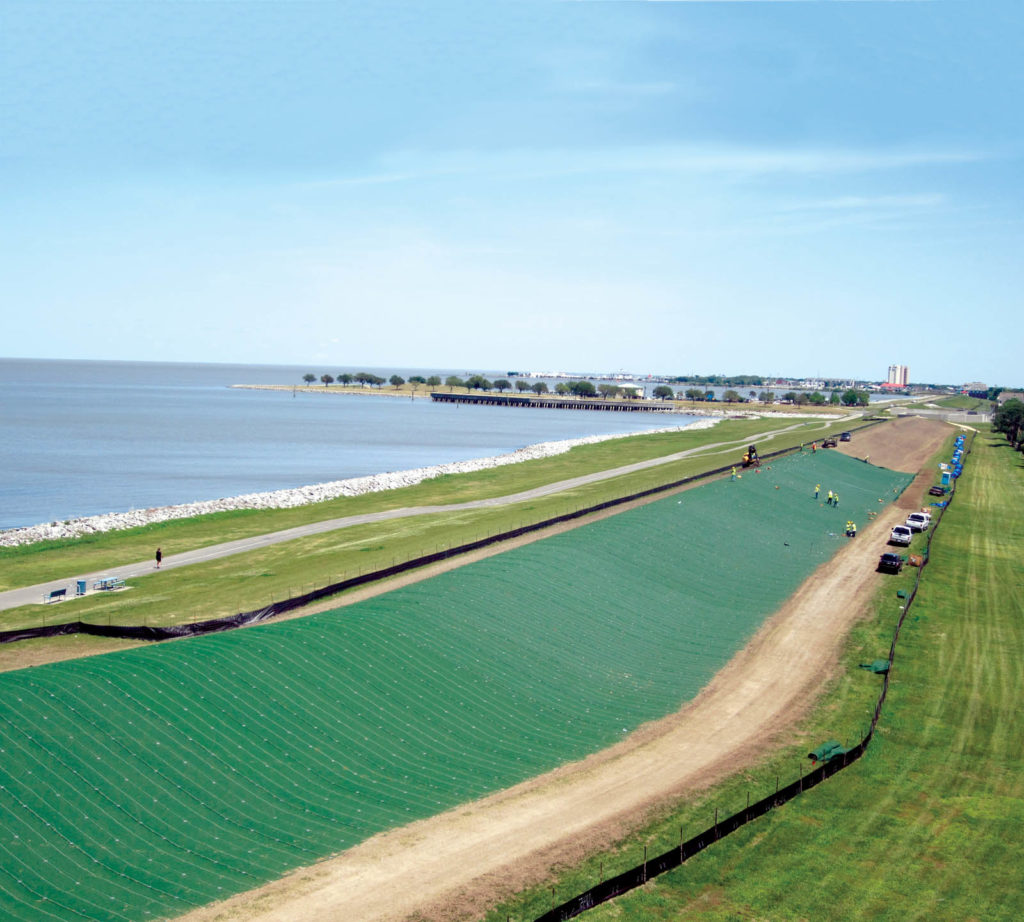The Geosynthetic Institute (GSI) will sponsor a webinar, “Geomembranes in Hydraulic Applications (dams, canals, reservoirs, tunnels, pipes),”on July 14, from 11:30 a.m. to 1 p.m. EDT. Geosynthetic Materials Association (GMA) member companies and their employees receive discounted rates on all GSI webinar and short course registrations.
By 2040 it is estimated that two billion people (25% of the world’s population) in 60 countries will have inadequate fresh water. This alarming prediction suggests that water must be hydraulically transferred from locations of excess to those in need. This webinar will make the point that geomembranes (but also GCLs) will play a pivotal role in this regard. Applications include all types of dams, canals, reservoir liners and covers, tunnels, and pipelines.
Each specific application is explained and illustrated insofar as the latest technology is concerned. Even bold new initiatives of fresh water being transported by sea in mega- geomembrane bags will be illustrated.
Each section of the webinar has its own summary leaving a conclusions and recommendation section for the end. Here the state-of-the-practice will be presented along with the suggested “key to acceptance” status being mentioned.

Learning objectives
Since everyone is aware of the inadequacy of fresh water in many areas, along with an abundance in other areas, the storage/distribution/transportation of it over long distances without leakage becomes critical. This webinar focuses directly on the geosynthetic options that are involved. Participants will learn about waterproofing of existing and new dams as well as parallel applications with canals, reservoir liners, reservoir covers, tunnels and pipelines. The current status of these myriad applications will be presented from the perspectives of market penetration, obstacles to use, incentives and level of acceptance.
Webinar benefits
- Learn of the statistics of the freshwater crisis
- Learn about waterproofing of existing and new dams
- Learn about waterproofing of existing and new canals
- Learn about waterproofing of reservoir liners
- Learn about floating covers for reservoirs
- Learn about waterproofing existing and new tunnels
- Learn about different methods for trenchless pipe construction and remediation
Intended audiences
This webinar is intended for public and private owners of dams, canals, reservoirs, tunnels and pipelines; federal, state and regional hydraulic, geotechnical, and geoenvironmental engineers; engineers from municipal districts and townships; private and municipal land developers; general civil consulting engineers; testing laboratories servicing these organizations; manufacturers of geosynthetic materials; contractors and installers of geosynthetic materials; academic and research groups; and others desiring technically related information on this important aspect of our hydraulic infrastructure.
Specific topics covered
- Background
- Waterproofing of dams
- Canal linings
- Reservoir linings
- Reservoir covers
- Tunnels and pipes
- Conclusions and recommendations
Webinar instructor
George R. Koerner, Ph.D., P.E., and CQQ, is the director of the Geosynthetic Institute. He is in charge of laboratory accreditation, field certification and continuing education at the institute. He also manages several research projects and has published more than 350 technical papers in his 35-year association with polymers used in below-ground construction. Koerner’s Ph.D. is from Drexel University in geotechnical engineering. He is a registered professional engineer and a certified quality auditor. Koerner has received many awards over the years. The most notable being IFAI’s Environmental Technologies Award of Excellence 1995, ASCE’s DVGI Geotechnical Engineer of the year in 2004, the title of ASTM Fellow in 2013 and GMA’s first Robert M. Koerner Lecture and Award in 2017.
***
Webinars cost $200.00 for GSI and GMA members, and $250.00 for nonmembers. Successful completion of a multiple-choice test after the webinar carries 1.5 professional development hours (PDH).
For more information or to register, visit http://www.geosynthetic-institute.org/webinar.htm.
 TEXTILES.ORG
TEXTILES.ORG


